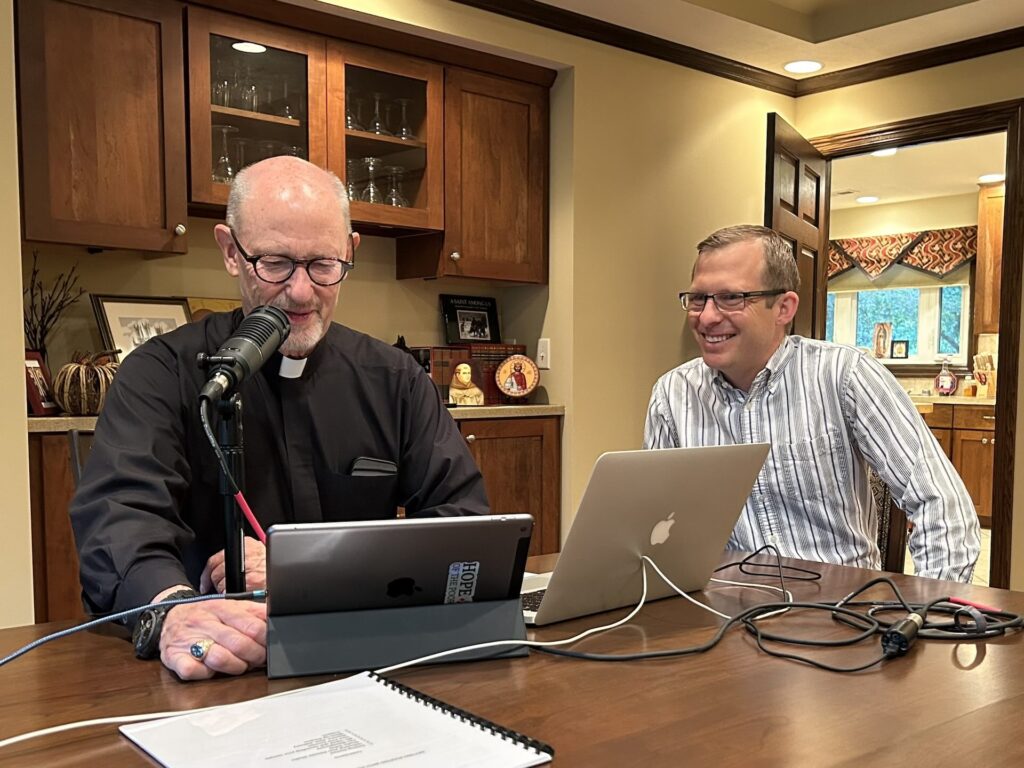We are designed for greatness.
As men we are built to undertake hard things for the sake of others, fighting and protecting. In so many ways this God-given impulse has been dumbed down in our culture. We too often turn to virtual outlets for manhood that corrupt our instincts rather than fulfilling them.
When it comes to the Christian life, we have a similar impulse for greatness. Christ calls us to follow him, fight spiritual battles in the desert, and to take up our cross in immortal combat. We cannot win this spiritual fight, however, without dying to ourselves. A great paradox lies in the heart of the Christian: we cannot achieve victory unless we first surrender to Christ in humility.
Humility comes from the Latin humus, meaning dirt. The virtue of humility keeps this humble origin in mind: from dust we come, to dust we must return. It is not so much a matter of thinking badly of ourselves as of realizing our weakness and absolute dependence upon God. Humility recognizes that every good thing comes from God and when we rely on ourselves we will fall. It perceives truly who we are and also who we are called to be in God if we do rely on him.
Exodus calls us to do great things for God, taking time for prayer and opening up space for him in our lives by our penance. We have to remember that without Jesus, we “can do nothing” (John 15:5). Exodus 90 should teach us more about ourselves and our need for God. It cannot bring us to true freedom without relying on God in prayer and depending upon our brothers in fraternity. Ultimately, it is not about us at all but a turning to God so that we can be more present for others.
We have to be on our guard against pride. The devil will use our prayer time and ascetical practices against us by trying to inflate us and lead us to think that we are already advanced in the spiritual life. For this reason an early Church Father advised: “Be on your guard when you begin to mortify your body by abstinence and fasting, lest you imagine yourself to be perfect and a saint; for perfection does not consist in this virtue. It is only a help; a disposition; a means though a fitting one, for the attainment of true perfection” (attributed to St. Jerome). God can work in us much more during our 90 days if we remain humble.
If you experience freedom through Exodus, however, you are going to want to share your experience with other men. That is only natural and actually a great act of charity to other men who also need to experience freedom in their lives. We have to maintain a focus on God and his grace. When we invite someone into their own exodus, it is an invitation for them to spend time with Christ in the wilderness of prayer and asceticism.
Personal witness plays an important role in evangelization. Our own lives are examples of what God can do but we need to avoid the temptation of pride and bragging about the spiritual exercises we have undertaken. Exodus should inspire greater humility as we come up against our limits and our need for God’s grace. Our witness should express this humility and ultimately point to Christ as the one who can bring other men to freedom.
Exodus 90 starts January 1 — sign up for free:

Dr. Staudt holds a Ph.D. in systematic theology from Ave Maria University and B.A. and M.A. in Catholic Studies from the University of St. Thomas (St. Paul, MN). He serves as Director of Content for Exodus and as Visiting Associate Professor at the Augustine Institute in Denver. He was previously the Associate Superintendent for the Archdiocese of Denver. He has founded a Catholic school and served as a DRE in two parishes and as Director of Catholic Studies at the University of Mary. He is the author of How the Eucharist Can Save Civilization (TAN), Restoring Humanity: Essays on the Evangelization of Culture (Divine Providence Press) and The Beer Option: Brewing a Catholic Culture Yesterday & Today (Angelico Press). His editing experience includes six years as the managing editor of the journal Nova et Vetera and the books Renewing Catholic Schools: How to Regain a Catholic Vision in a Secular Age (Catholic Education Press) and The University and the Church: Don J. Briel’s Essays on Education (Cluny Media).





